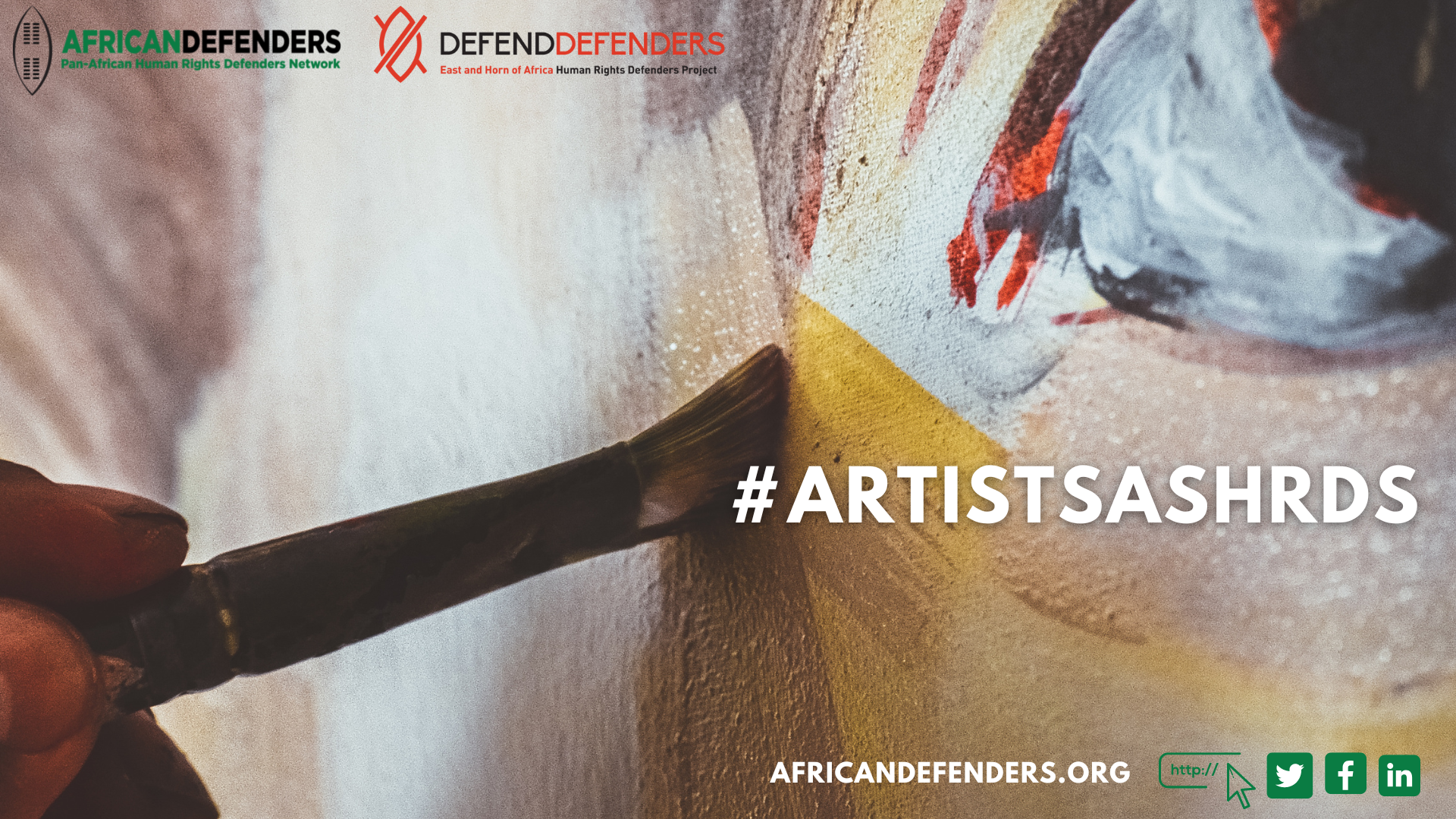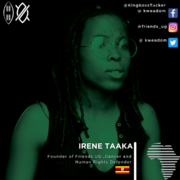
29 August, 2022
#ArtistsAsHRDs : Artists defending human rights in Africa
What pushed you to start your activism?
What inspires your craft?
Get to know us
Campaign Launch
Artists across the continent have risen up to speak out against the stifling of fundamental human rights in their societies. As the civic space continues to shrink in Africa, the reprisals against artists in activism continue to rise. Artists are particularly targeted for being human rights defenders, standing for the causes they believe in and because art is a powerful vehicle to deliver messages that resonate with the population to create change. They are targeted in many different ways, responding to different strategies to silence them. They range from censorship to violations such as threats, detentions, legal prosecution, imprisonments and, in the worst cases, murder. Multiple actors practice the culture of silencing artistic expression. Violators are not only governments of repressive regimes, as commonly cited, but democratic states as well.
The gender-based silencing of women artists remains one of the big challenges to the freedom of artistic expression. Numerous cases of violations of artistic freedom show that women are prohibited from certain expressions to uphold traditional or religious norms. Women who try to challenge those norms often experience pushback and are labelled as ‘indecent’. Many female artists also suffer negative repercussions when they use their creative skills to express their opinions on issues such as body positivity and sexuality or to challenge gender inequalities.
Furthermore, the rapidly increasing digital space offers a lot of opportunities for artists but it also comes with more opportunities for arbitrary censorship from social media companies or state authorities. Nationwide internet blackouts and government social media blackouts are common tactics state authorities use to silence critics.
This campaign sheds light on the important role that creative human rights defenders play in advancing and protecting human rights in Africa. It explores why it is imperative to protect and promote artistic human rights defenders.








